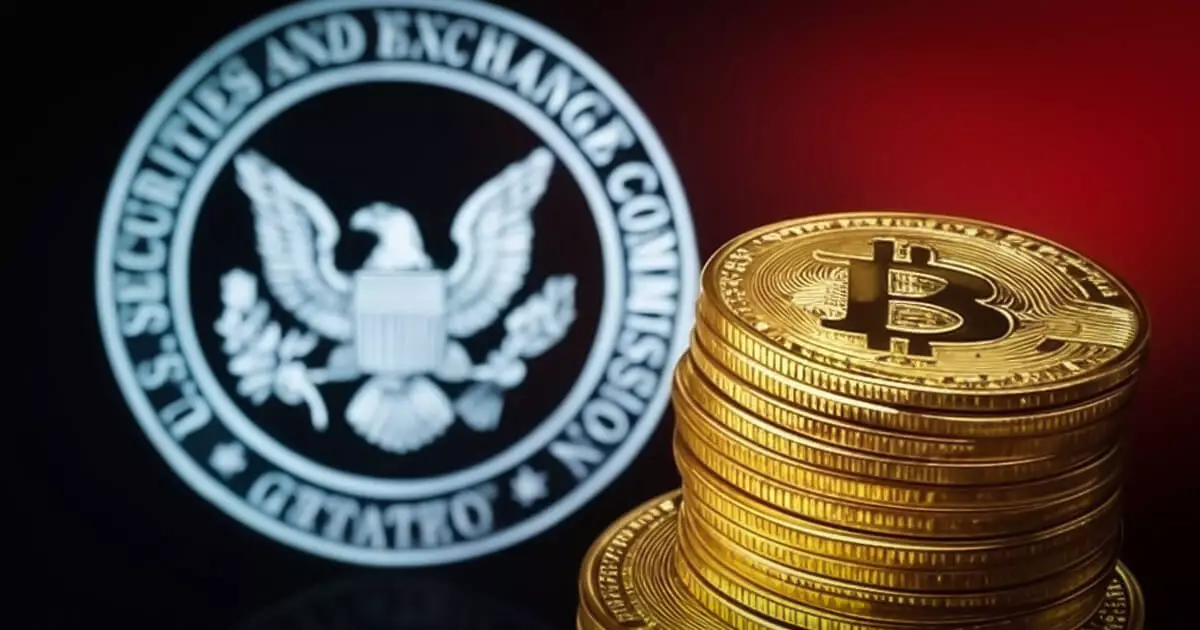The departure of one administration and the arrival of another brings with it an atmosphere of uncertainty and the promise of change, particularly within the financial sector. As President-elect Donald Trump gears up to take office, he is expected to oversee a recalibration of the US Securities and Exchange Commission (SEC). Reportedly, significant adjustments in the agency’s approach to cryptocurrency regulation may be on the horizon, potentially easing previous enforcement actions against crypto firms. This article delves into the implications of these shifts, the individuals driving them, and the broader consequences for the cryptocurrency landscape.
Amidst the anticipated changes, key figures within the SEC are ready to engage in a reevaluation of the agency’s stance on cryptocurrencies. SEC commissioners like Hester Peirce and Mark Uyeda have garnered attention for their favorable outlook on digital assets. Their willingness to revise existing policies reflects an evolving regulatory environment that may result in clearer delineations regarding what constitutes a security in the realm of cryptocurrencies. The backdrop of these discussions is crafted by the impending leadership role of Paul Atkins, the former SEC commissioner who has been vocal about his support for more permissive cryptocurrency regulations since his time with the Digital Chamber’s Token Alliance.
This shift in leadership not only signals potential alterations to the enforcement landscape but also hints at an agency primed for dialogue regarding its regulatory methodologies. By engaging in a dialogue that seeks to clarify existing ambiguities regarding the definition of securities, the SEC may create a more conducive environment for innovation while simultaneously maintaining regulatory integrity. Yet, the real challenge will be in achieving consensus among the SEC’s commissioners and stakeholders in an often-divided arena.
Despite the promising rhetoric surrounding forthcoming changes, the reality of implementing new regulations may be far from straightforward. Critics express concern that any substantial rollback of existing enforcement actions could introduce a dangerous precedent within the regulatory framework. These fears underscore the importance of maintaining a vigilant stance against any potential abuse inherent in the cryptocurrency marketplace. Legal experts caution that proactive measures must be balanced against the need to uphold the integrity and credibility of the SEC.
In particular, the implications of halting ongoing litigation raise eyebrows among industry watchers. While cases lacking allegations of fraud might be candidates for reevaluation, new policies that overly favor the crypto sector could diminish the effective enforcement of laws designed to protect investors. The SEC’s willingness to engage in settlement negotiations also raises pertinent questions about how it would navigate the complex legal landscape associated with defining securities and enforcing compliance in this fast-evolving field.
The proposed softening of regulatory measures, if realized, could create a more favorable climate for cryptocurrency firms. High compliance costs, largely driven by the existing stringent frameworks, have often deterred companies from engaging with cryptocurrencies. An administration favoring relaxed regulations could lead to renewed interest and investment in the cryptocurrency sector, aiding both startups and established entities.
However, industry stakeholders should remain cautious; as legal expert Philip Moustakis points out, the prospect of dismissing multiple cases en masse could threaten the SEC’s standing within the financial community. The potential upheaval of the regulatory status quo carries considerable weight, as it may lead to courts pushing back against such sweeping decisions. Moreover, a reputation for inconsistency or political maneuvering could erode the SEC’s credibility, undermining public trust and investor confidence over the long term.
The anticipated changes within the SEC under President Trump’s administration could herald a new era for cryptocurrency regulation in the United States. While advancements toward clarification and reduced enforcement might appear beneficial, the overall ramifications for the regulatory landscape demand careful consideration. The delicate balance between fostering innovation and ensuring market integrity will be critical for navigating the forthcoming adjustments—and how these unfolding developments will influence the future of cryptocurrency remains a compelling narrative to watch. As the dust settles, stakeholders must remain vigilant and engaged in shaping a regulatory framework that genuinely supports both innovation and protection within the ever-evolving digital landscape.
















Leave a Reply